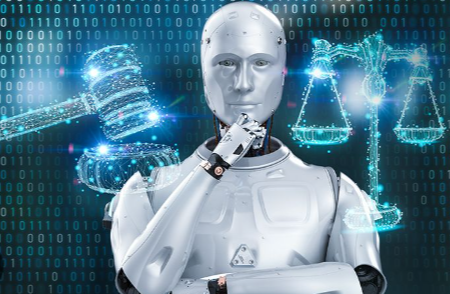Tech Horizons: Exploring the Cutting Edge of Innovation

In a world where technology evolves faster than ever, it’s essential to keep an eye on the horizon. Innovation is the driving force behind progress, pushing boundaries, and reshaping industries. From artificial intelligence to quantum computing, the landscape of technology is constantly expanding, offering new possibilities and challenges.
In this blog post, we’ll delve into some of the most exciting advancements on the tech horizon, exploring how they’re poised to transform our lives and societies.
Read more: click all links
https://ultimatestatusbar.com/what-are-the-common-signs-of-neglect-in-philadelphia-nursing-homes/
https://fideleturf.org/plumbing-excellence-carrum-downs-expertise-oakleigh-selection-tips/
https://fideleturf.org/empowering-support-disability-agencies-ndis-providers-in-melbourne/
https://fideleturf.org/plumbing-excellence-langwarrin-vs-pearcedale/
https://fideleturf.org/navigating-ndis-plan-management-choosing-the-right-path-in-western-australia/
https://fideleturf.org/storm-preparedness-cleaning-and-preparing-your-roof-and-gutters-for-severe-weather-conditions/
https://fideleturf.org/the-role-of-a-conveyancer-a-guide-for-property-sellers-and-owners/
https://fideleturf.org/pte-score-what-to-know-and-how-to-score-well-on-the-test/
Artificial Intelligence: The Rise of Machine Learning
Artificial intelligence (AI) has been a buzzword for years, but recent advancements in machine learning have taken it to new heights. Machine learning algorithms can now process vast amounts of data and learn from it, enabling applications ranging from virtual assistants to autonomous vehicles.
One of the most exciting developments in AI is its potential to revolutionize healthcare. Machine learning algorithms can analyze medical data to diagnose diseases, predict patient outcomes, and even suggest personalized treatment plans. This has the potential to improve patient care, reduce costs, and save lives.
Read details: https://fideleturf.org/elevate-your-stay-personalised-experiences-in-short-term-accommodation-in-adelaide/
https://ultimatestatusbar.com/empowering-individuals-personalised-ndis-provider-services-in-melbourne/
Quantum Computing: Unlocking Unprecedented Power
Quantum computing is another frontier of technology that holds immense promise. Unlike classical computers, which use bits to represent information as either 0 or 1, quantum computers use quantum bits, or qubits, which can exist in multiple states simultaneously. This allows them to perform complex calculations at speeds that are orders of magnitude faster than traditional computers.
While still in its early stages, quantum computing has the potential to revolutionize fields such as cryptography, materials science, and drug discovery. It could enable us to solve problems that are currently intractable, leading to breakthroughs that were once thought impossible.
Read more: https://fideleturf.org/6-reasons-why-every-homeowner-needs-an-emergency-plumber-on-speed-dial/
Augmented Reality: Bridging the Physical and Digital Worlds
Augmented reality (AR) has been steadily gaining traction in recent years, thanks to advancements in hardware and software. AR overlays digital information onto the physical world, creating immersive experiences that blend the virtual and real.
From gaming to retail, AR has the potential to transform numerous industries. For example, retailers can use AR to create virtual fitting rooms, allowing customers to try on clothes from the comfort of their own homes. Similarly, architects and engineers can use AR to visualize complex designs in real-world environments, making it easier to collaborate and iterate on projects.
Read more: https://fideleturf.org/essential-plumbing-services-from-pipes-to-fixtures-everything-your-home-needs/
Robotics: The Future of Automation
Robots have long been a staple of science fiction, but recent advancements in robotics are bringing them closer to reality. From self-driving cars to delivery drones, robots are poised to revolutionize transportation and logistics.
In addition to physical robots, there’s also been significant progress in the field of soft robotics, which involves creating robots from flexible and deformable materials. These robots are capable of navigating complex environments and interacting safely with humans, opening up new possibilities in fields such as healthcare and manufacturing.
Read more: https://fideleturf.org/unlocking-drone-power-lipo-batteries-best-chargers/
Conclusion
As we look to the future, it’s clear that the possibilities of technology are limitless. From artificial intelligence to quantum computing, the cutting edge of innovation is reshaping the world around us, offering new opportunities and challenges. By staying informed and embracing these advancements, we can harness the power of technology to build a brighter future for all.
FAQs
1. What is the difference between artificial intelligence and machine learning?
Artificial intelligence (AI) is a broad field of computer science focused on creating systems that can perform tasks that typically require human intelligence. Machine learning is a subset of AI that involves training algorithms to learn from data and make predictions or decisions without being explicitly programmed.
Read more: https://fideleturf.org/diy-vs-professional-when-to-call-an-automotive-locksmith-near-me/
2. How does quantum computing work?
Quantum computing harnesses the principles of quantum mechanics to perform calculations using qubits, which can exist in multiple states simultaneously. This allows quantum computers to explore many possible solutions to a problem simultaneously, making them exponentially faster than classical computers for certain types of calculations.
Read more: https://fideleturf.org/choosing-ndis-providers-in-melton-sta-in-melbourne/
3. How is augmented reality different from virtual reality?
Augmented reality (AR) overlays digital information onto the real world, enhancing our perception of reality. Virtual reality (VR), on the other hand, immerses users in a completely virtual environment, shutting out the physical world entirely.
Read more https://fideleturf.org/12-questions-ndis-participants-must-ask-providers/
4. What are some practical applications of robotics?
Robotics has numerous practical applications across various industries. For example, in manufacturing, robots can automate repetitive tasks, increasing efficiency and productivity. In healthcare, robots can assist with surgery, rehabilitation, and eldercare. In agriculture, robots can help with planting, harvesting, and monitoring crops.
Read more https://fideleturf.org/ndis-plan-management-made-easy-tips-for-sydney-participants/
5. Are there any ethical concerns associated with these technologies?
While these technologies offer tremendous potential benefits, they also raise ethical concerns around issues such as privacy, job displacement, bias in AI algorithms, and the misuse of powerful technologies like quantum computing. It’s essential for developers, policymakers, and society as a whole to address these concerns proactively to ensure that technology is used responsibly and ethically.
